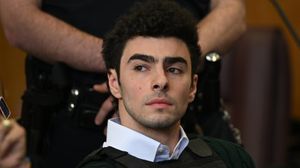Russia's human
rights climate is deteriorating and Soviet-style
restrictions on freedom of speech and expression are
multiplying, Russian and international activists
warned Tuesday. Nina Tagankina of the Moscow Helsinki
Group said there has been an ''overall worsening'' of the
situation in Russia and that authorities are prohibiting
even peaceful protests and rallies.
She said a gay
rights group in the Siberian city of Tyumen was denied
official registration after authorities said its advocacy
work would not help prevent Russia's sharp population
decline and thus posed a threat to the county's
national security.
The Vienna-based
International Helsinki Federation said in a report that
Russian authorities have tightened restrictions on political
pluralism and the freedom of association and said
officials were resorting to intimidation and abuse of
opposition activists.
''The actions of
the police...remind one of the intolerance of political
pluralism that existed here in the Soviet Union,'' executive
director Aaron Rhodes said in a statement. ''Russia is
moving toward a one-party state. There is intolerance
of political pluralism that is developing.''
Over the weekend
police in the central city of Nizhny Novgorod violently
dispersed an antigovernment rally dubbed the March of Those
Who Disagree. Three weeks earlier police clubbed
protesters and dragged them into waiting buses in St.
Petersburg during a bold demonstration against
President Vladimir Putin and Kremlin policies. An
antigovernment protest in Moscow in December was
similarly quashed by a massive police presence that
dwarfed the demonstrators.
The crackdown in
Nizhny Novgorod prompted the United States on Monday to
decry ''Russian government heavy-handedness'' against people
trying to exercise democratic rights.
It ''raises
serious concerns about Russians' ability to exercise their
rights to assembly, free speech, and peaceful protest,''
U.S. State Department spokesman Tom Casey said.
In a letter to
Russia's human rights ombudsman, leading rights activists
said the breakup of the demonstrations were blatantly
illegal. They also quoted Putin as saying earlier this
month, ''If some quantity of dissenters want to hold a
march, no one has the right to deprive them of this
right.''
''A legal
question arises: to what extent is policy in the country
determined by the guarantees of the Constitution and to what
extent by law-enforcement agencies and local
governments?'' said the letter, signed by Moscow
Helsinki Group chairwoman Lyudmila Alexeyeva, For Human
Rights chairman Lev Ponomaryov, and 18 other
activists.
Tagankina also
said a recently passed law tightening restrictions on
rights groups violated the groups' freedom of expression and
prevented many organizations from operating freely.
Helsinki Group
officials also said they was concerned over persistent
rights abuses in the troubled North Caucasus region,
especially war-shattered Chechnya, that were taking
place under the pretext of the fight against
terrorism.
The
organization's leaders also said antiterrorism measures
in the United States and the United Kingdom have
led to human rights abuses. (Maria Danilova, AP)



















































































